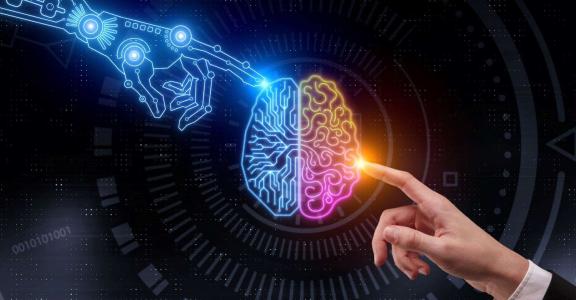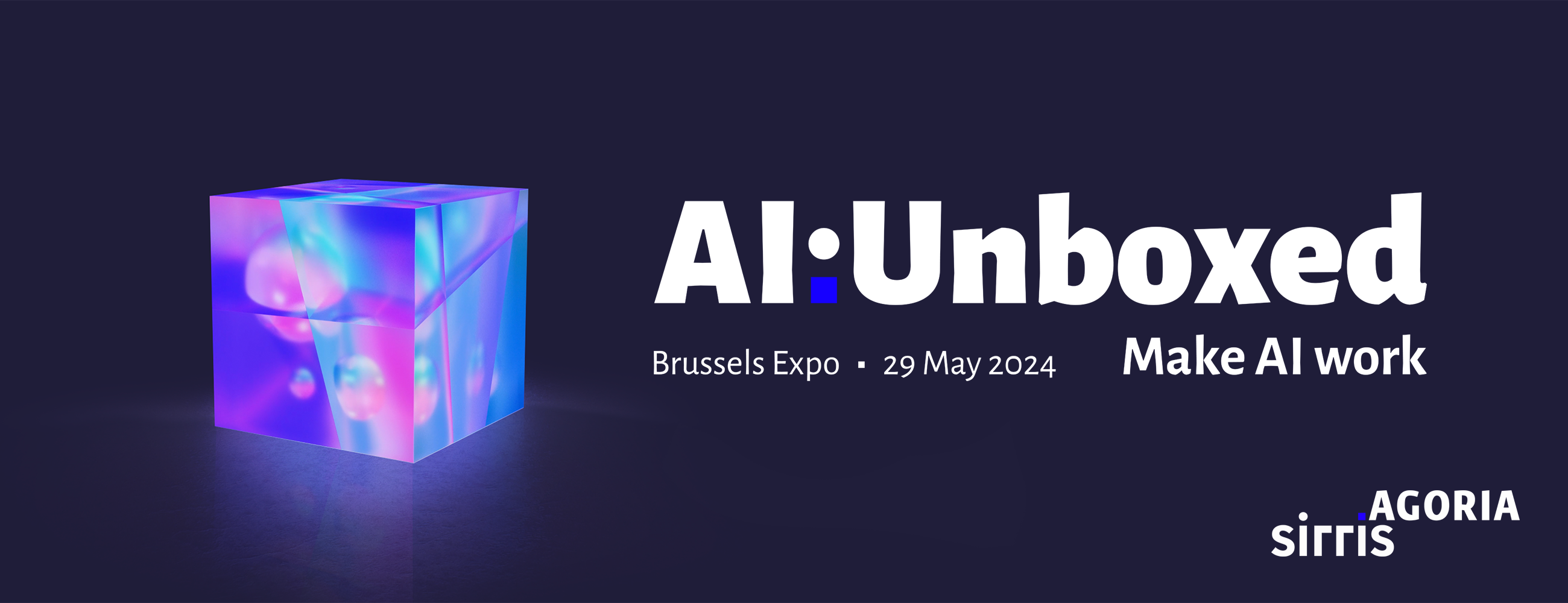It is undeniable that Artificial Intelligence (AI) is everywhere these days. Even in the mainstream media, AI is often the theme of the day. We see all kinds of examples and applications that amaze us but also make us think about the future. But can this technology also be used in a production environment? How can AI help increase our competitiveness? And do we have to become AI experts for this? Manufacturing companies are left with many questions. On the other hand, a recent study by Sirris revealed that most manufacturing companies are aware that this technology is here to stay and could be a game changer in manufacturing too.
“That’s not something for us”
During a recent survey of the manufacturing industry (by Sirris), companies often gave a number of reasons for why they are still hesitant (for the time being) to fully implement AI in their company:
- We don't have much data and the quality of the data is not good (enough).
- We do not have the necessary expertise to apply AI
- We don't want to use a black box to solve certain problems
- We think we have to invest too much in the way of time and resources to roll out an application and worry that the advantages will turn out to be small.
- We don't actually know what the impact could be
The above comments suggest that the thresholds are still too high for the time being. Nevertheless, it was noted that more than 80% of the manufacturing companies visited stated that they see AI as a valuable technology. When they outline their ideal future (from a production point of view), it turns out that almost all scenarios contain an important AI component, such as automatic quotation generation, automatic production planning, self-adjusting machines, vision combined with robotisation, etc. Are we then left with a chicken-and-egg situation?
Generative AI as an accelerator?
Artificial intelligence actually goes back a long way. The term was first used around 1950, mainly in scientific circles. In recent decades, more (research) resources have been systematically released to explore its potential. The availability of more and cheaper computing power and breakthroughs in deep learning provided an extra boost. We also see this in the manufacturing industry: more and more concrete applications are gradually emerging, especially for preventive maintenance, automated quality control and process optimisation.
But why are we experiencing a (renewed) interest in AI today? Simply put: ChatGPT! ChatGPT is a specific implementation of what is called ‘generative AI’. Without going into too much detail: ChatGPT is a large language model (LLM) designed explicitly to interact conversationally. It is trained on vast amounts of text, which allows it to plausibly generate answers to questions. ChatGPT is the most famous LLM and managed to reach more than 100 million users in two months!
The power of tools such as ChatGPT lies in their accessible nature - anyone can get started with them. You don't have to be an expert, you don't have to collect data, etc. You can start playing and testing immediately and the potential applications seem endless. Of course, there are limits to generative AI and it certainly does not replace machine learning and deep learning. On the other hand, we do notice that GenAI is an accelerator for more things. The thresholds seem to be going down.
The problem to be solved: support for the operators
In the literature, we find various AI applications in manufacturing industry (see above). Lately, we have noticed a striking number of questions about the possibility of using AI to support operators during their work. This should not be surprising: 1) finding suitable personnel is a challenge and 2) the complexity in production has increased. Both factors result in a clear problem that needs to be solved: how can we assist our operators during their work so that they can focus on their core tasks (which add value) and the cognitive load remains manageable (e.g. stress).
There are various options for using AI to support operators. For example, generative AI can be used to create work instructions more quickly based on text (e.g. a manual), spoken instructions, video analysis, etc. It is possible to create a production chatbot (based on specific company information) that helps the operator with all kinds of questions, such as when solving problems. Wearables (e.g. smartglass) linked to an AI system can be used to provide remote support to service technicians (root-cause analysis). Individual machines can be monitored so it can be indicated when they are in danger of breaking down or when quality is deteriorating, linked to options to avoid this. It is possible to analyse the quality of components/products (machine vision) and indicate whether they comply or not. The potential is very wide-ranging.
Let yourself be inspired!
Have you already started working with ChatGPT and are thinking about whether this can be useful in your company? Are you curious about the potential for AI in production?
Then don't miss the must-attend event organised by Sirris and Agoria on 29 May: AI: Unboxed! Discover the exciting programme here and register now to guarantee your place. Join us for a day of innovation, collaboration and discovery in the world of AI!
In addition to an inspiring overview of the potential for using AI in production, a number of companies explain their real-world cases: What problems did they want to solve? How could AI help them to solve them? How did they experience the process? What lessons would they like to share?





